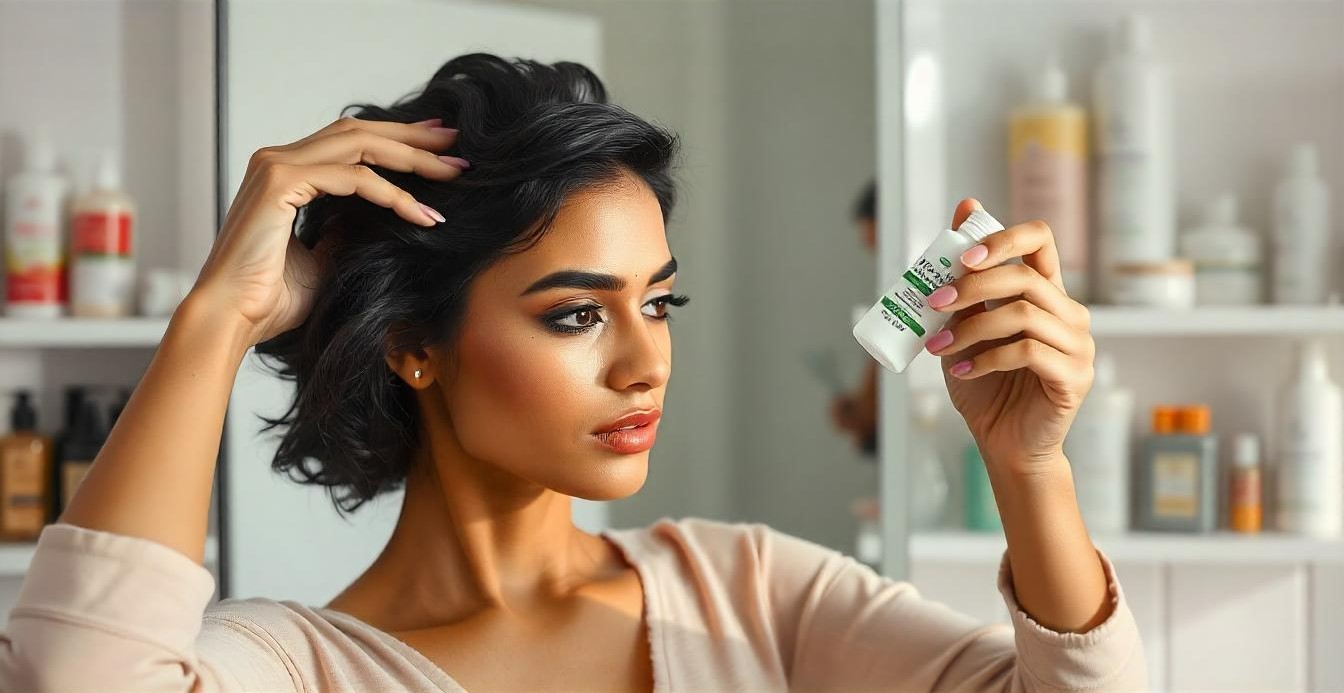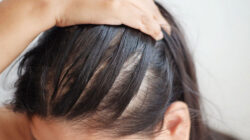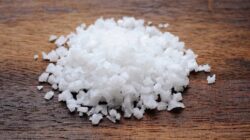Understanding Hair Loss and Its Causes
Hair loss is a complex issue that affects many individuals, and understanding its underlying causes is crucial for effective treatment. In our exploration of hair loss treatments, we have come across two prominent options: biotin and minoxidil.
Biotin, a B-vitamin, is often touted for its role in supporting hair growth as a dietary supplement. It is believed to enhance the keratin infrastructure, which is vital for maintaining healthy hair. As someone who has researched this topic extensively, we appreciate how biotin contributes to overall hair health, potentially reducing the risk of hair loss due to nutritional deficiencies.
On the other hand, minoxidil presents a more direct approach to treating hair loss. Originally developed as a medication for hypertension, its vasodilatory properties have been found to stimulate hair follicles and promote hair regrowth. However, it is important to note that minoxidil can come with potential side effects, which may deter some individuals from using it.
Overview of Hair Loss Treatments Available
When considering hair loss treatments, we have found that there is a wide array of options available, each with its own mechanisms and benefits. Biotin stands out as a vitamin supplement that offers various hair health benefits. It is often recommended for individuals looking to improve their hair’s strength and appearance, making it a popular choice among those seeking natural remedies.
In contrast, minoxidil is a topical treatment that has garnered significant attention for its efficacy in promoting hair growth. While biotin supports hair health on a cellular level, minoxidil works more aggressively by stimulating hair follicles and increasing blood flow to the scalp. This direct action can lead to noticeable improvements in hair density and thickness.
However, the effectiveness of minoxidil comes with the caveat of potential side effects, which can include scalp irritation and unwanted facial hair growth in some users.
Biotin: Benefits Beyond Hair Growth
In our research, we have discovered that biotin offers benefits that extend beyond merely addressing hair loss. As a water-soluble B-vitamin, biotin plays a vital role in the body’s metabolism, contributing to the health of skin and nails as well. This holistic approach to wellness is appealing, especially for those who may be experiencing hair thinning as a symptom of an underlying nutritional deficiency. By supporting overall hair health, biotin can enhance the quality of existing hair, making it appear shinier and more resilient.
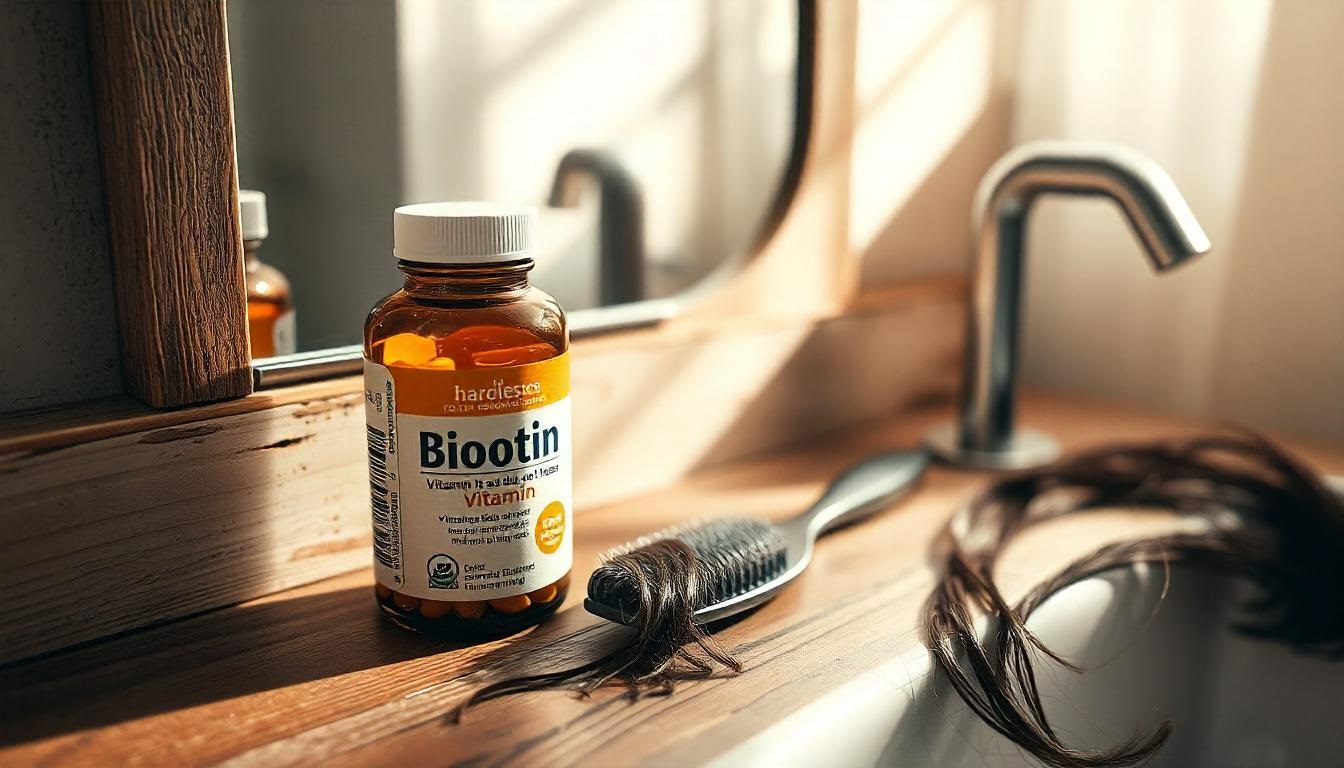
On the other hand, minoxidil provides a targeted solution for hair growth stimulation. Its primary function is to revitalize dormant hair follicles, resulting in new hair growth. While biotin may take time to show results, minoxidil often delivers quicker outcomes, making it an attractive option for individuals seeking immediate improvements.
Minoxidil: Mechanism of Action and Efficacy
Understanding the mechanism of action of minoxidil has been enlightening in our exploration of hair loss treatments. Minoxidil promotes hair growth through a vasodilation mechanism, whereby it widens blood vessels in the scalp. This increased blood flow delivers essential nutrients and oxygen to hair follicles, thus revitalizing them and encouraging hair growth. Clinical studies have shown that minoxidil can effectively increase the size of hair follicles, leading to thicker and fuller hair.
Conversely, while biotin is a vitamin supplement that supports hair health, its benefits in terms of hair loss treatment are more limited. Biotin can help prevent hair loss caused by nutritional deficiencies, but it does not directly stimulate hair growth in the same manner as minoxidil. This distinction is crucial for individuals seeking to understand which treatment may be more suitable for their specific hair loss issues.
Comparative Analysis of Biotin and Minoxidil
In our comparative analysis of biotin and minoxidil, we have noted that biotin serves primarily as a vitamin supplement aimed at improving hair health. Its role in strengthening hair and preventing breakage is well-documented, making it a valuable addition to one’s daily regimen for those concerned about hair quality. However, it is essential to recognize that biotin’s impact on hair loss is indirect; it may not be effective for everyone, especially those with genetic predispositions to hair loss.
In contrast, minoxidil’s effectiveness as a treatment for hair growth is well-established. It has been extensively studied and is FDA-approved for treating androgenetic alopecia in both men and women. While biotin may enhance the overall health of hair, minoxidil offers a more aggressive approach to combat hair loss, making it a preferred choice for many individuals experiencing significant thinning.
Evaluating Side Effects and Safety Profiles
When evaluating the side effects and safety profiles of biotin and minoxidil, we have found that biotin generally has minimal side effects. As a water-soluble vitamin, excess biotin is typically excreted through urine, making it relatively safe for most individuals. However, it is important to consult with a healthcare provider before beginning any supplementation, especially for those with underlying health conditions.
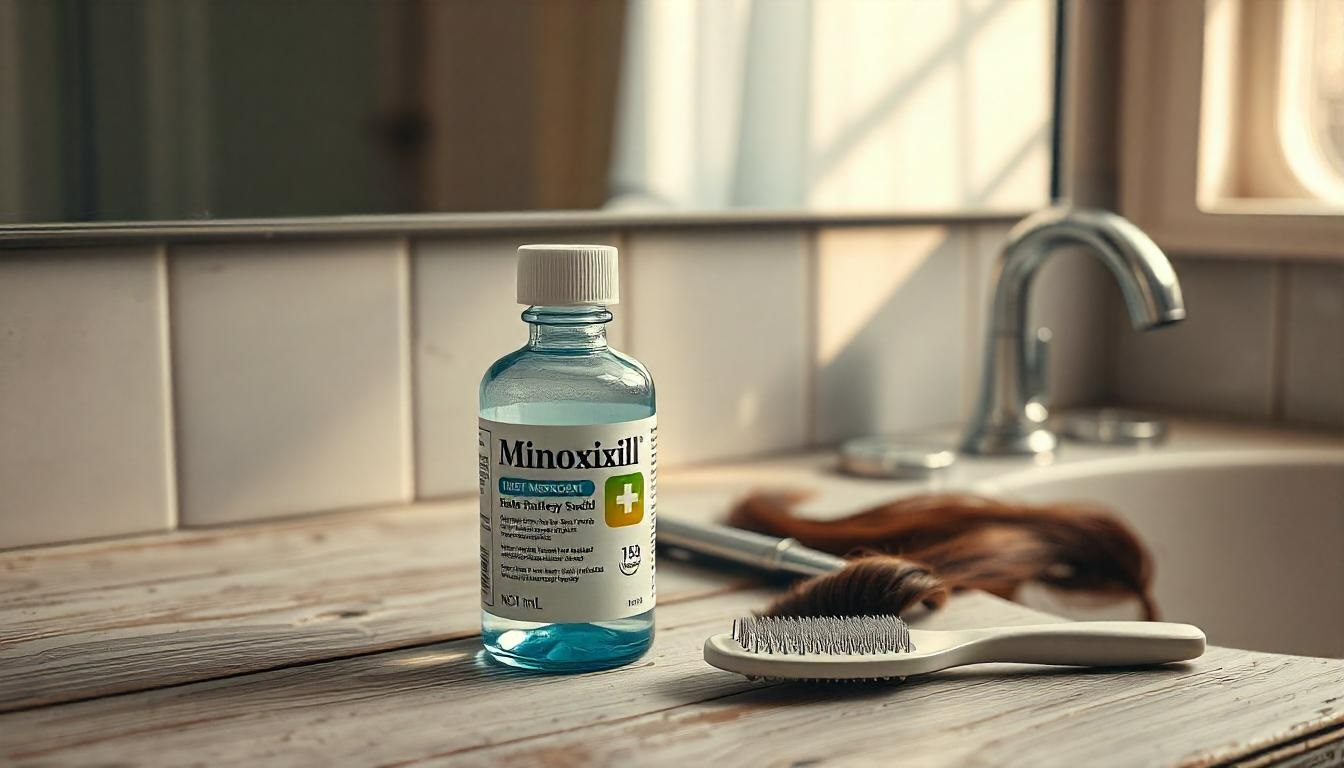
On the other hand, while minoxidil offers faster hair growth results, it does come with notable side effects. Users may experience scalp irritation, itching, or dryness, and in some cases, unwanted facial hair growth. These potential side effects can be concerning for individuals considering minoxidil as a treatment option. Therefore, it is imperative to weigh the benefits against the risks when deciding between these two treatments.
Patient Experiences and Testimonials
In our exploration of patient experiences and testimonials, we have come across numerous accounts highlighting the benefits of biotin for hair growth. Many users report improvements in hair thickness and overall health after incorporating biotin into their diets, often noting that their hair feels stronger and appears shinier. These positive testimonials underline biotin’s role in supporting hair health, particularly for those who may be experiencing hair loss due to nutritional deficiencies.
Conversely, minoxidil users frequently report effective treatment for hair loss issues, with many experiencing visible regrowth within a few months of use. These firsthand accounts provide valuable insights into the effectiveness of each treatment option, helping individuals make informed decisions based on their unique hair loss challenges. Ultimately, both biotin and minoxidil have their respective advantages and can play significant roles in the journey toward healthier hair.
- Understanding Amlodipine as a Calcium Channel Blocker - April 4, 2025
- Essential Vitamins for Flu Prevention - March 6, 2025
- Low Calorie Weight Loss Protein Shakes for Mens Health - March 5, 2025
